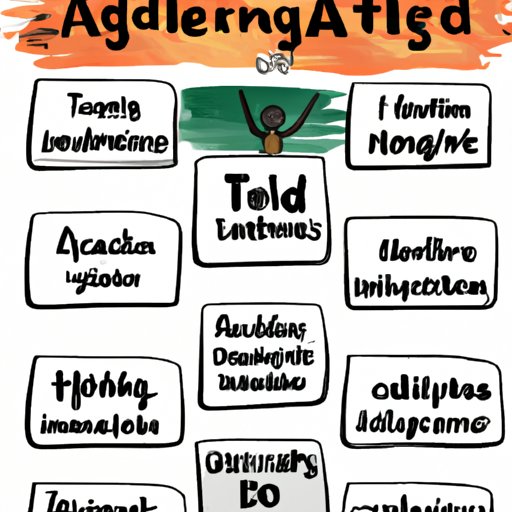
How to Deal with ADHD: Tips for Managing Symptoms
Attention Deficit Hyperactivity Disorder (ADHD) is a neurodevelopmental disorder that affects both children and adults. It is characterized by impairments in attention, hyperactivity, and impulsivity. Living with ADHD can be challenging, both for the person with the disorder and those around them. However, making a few changes to your daily routine and taking steps to manage symptoms can significantly improve quality of life. In this article, we will explore different strategies for managing ADHD symptoms.
Identify Triggers
Triggers refer to anything that worsens ADHD symptoms. Identifying and avoiding triggers is key to managing ADHD. Triggers may include lack of sleep, caffeine, stress, or screen time. By keeping a journal of activities, you can identify which activities make symptoms worse and which ones improve them. It can help you determine a pattern and avoid potential triggers.
Create a Routine
A routine can help with managing ADHD symptoms. Establishing regular sleep, meal, and exercise times can help improve focus and reduce hyperactivity. A daily routine can also help with organization, making it easier to manage tasks and responsibilities.
Stay Organized
Staying organized is critical in managing ADHD symptoms. Using tools such as lists, calendars, and checklists can help you stay on top of tasks and appointments. Breaking larger projects into smaller achievable goals can also make them less overwhelming. Additionally, prioritizing tasks can make it easier to focus and avoid procrastination.
Limit Distractions
Visual and auditory distractions can significantly impact ADHD symptoms. Creating a quiet workspace, wearing noise-canceling headphones or earplugs, and muting notifications on devices can help reduce distractions. It is important to note that everyone has different levels of tolerance for distraction, so it is essential to find what works best for you.
Prioritize Self-Care
Self-care is critical in managing ADHD symptoms. Maintaining a balanced diet, exercising regularly, and getting enough sleep can help improve focus and reduce impulsivity. Additionally, engaging in stress-reducing activities such as meditation, yoga, or deep breathing can help manage anxiety and improve overall well-being.
Consider Medication
Medication is a commonly used treatment option for managing ADHD. It can help improve attention and reduce hyperactivity and impulsivity. There are different medications available to treat ADHD, including stimulants and non-stimulants. It is essential to consult with a healthcare provider to find the best medication options for your situation.
Seek Support
Living with ADHD can be challenging, and seeking support can make it easier. Friends, family, or support groups can be an excellent source of comfort and advice. There are also professional counselors and mental health providers who specialize in treating ADHD. Seeking professional help may assist in developing coping strategies, improving communication skills, and learning new organizational techniques.
Conclusion
Managing ADHD symptoms can be challenging but is achievable with the right strategy. Identifying triggers, staying organized, limiting distractions, prioritizing self-care, considering medication, and seeking support are all effective ways to manage ADHD. Trying out different methods and seeking professional help can help find what works best for your unique situation. Remember, managing ADHD is a process and requires patience and perseverance.





